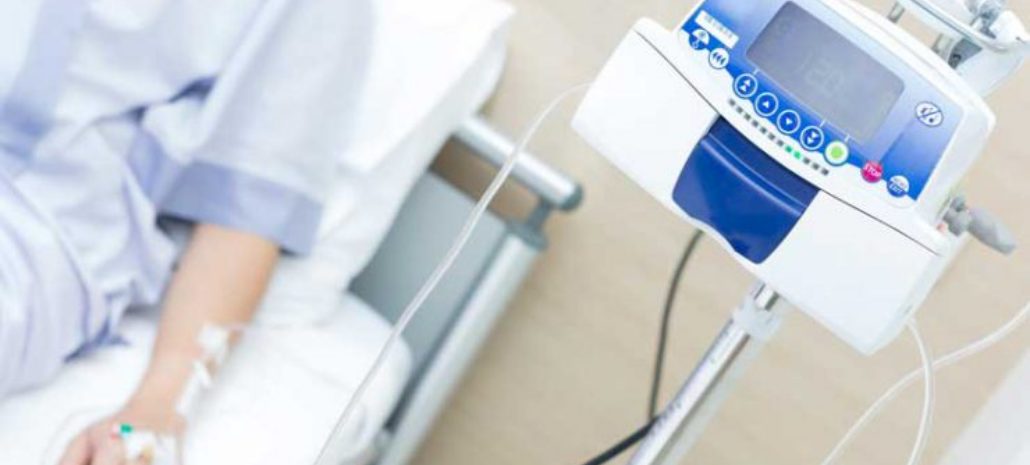Dr Manish Singhal - The best Cancer Specialist in Delhi
New tool alert: Introducing a tool to predict severe chemotherapy side effects

Since its inception in the 1940s, chemotherapy has come a long way.
Despite having evolved through the decades, chemotherapy remains invasive.
Chemotherapy can have some severe side effects. Why? You see, cancer cells tend to grow faster than most healthy cells. Chemotherapy drugs are designed to kill fast-growing cells, and they travel throughout the body. While doing so, they can affect/attack normal, healthy cells that are fast-growing. This causes subtle to severe side effects.
Not every patient going through chemotherapy experiences the same side effects. The severity of side effects varies greatly from person to person. The possibilities should be discussed in advance with a cancer specialist. Find the best cancer doctor in Delhi or wherever you’re from and he/she can help.
Most chemotherapy side effects go away with time, rehabilitation, and treatment. However, certain severe side effects either remain or can get worse over time in certain populations.
Earlier, there was no way to know for sure which chemotherapy side effect will present itself in which patient. Now a tool has been developed to do just that.
The new tool in town
This tool is only meant for breast cancer at the moment.
First of its kind, the tool is called the Cancer and Aging Research Group-Breast Cancer score, or CARG-BC score for short. Researchers at the City of Hope, a world-renowned independent research and treatment center for cancer, diabetes, and other life-threatening diseases have developed the tool. It predicts if older adults with early-stage breast cancer will develop a severe or deadly reaction to chemotherapy.
It helps cancer doctors make personalized breast cancer treatment recommendations.
Cancer specialists can further discuss the score and its significance with early-stage breast cancer patients of age 65 or older. Together, an informed decision about whether or not to go through with chemotherapy can be made weighing treatment benefits against the quality of life concerns.
More than 72% of older patients with cancer have said that they would prefer not to choose a cancer treatment that results in functional impairment even if it improves chances of survival.
So with this tool, rather than basing treatment decisions and care on demographics, cancer doctors can offer each elderly early-stage breast cancer patient individualized toxicity information that could help align their treatment with their goals for lifestyle, quality of life, longevity, and other patient priorities.
Thanks to the tool, treatment modifications could be recommended. Treatment modifications can be like dose reductions or longer periods between chemotherapy sessions. Older patients can also be preemptively referred for supportive care interventions such as consults with physical therapists, occupational therapists, social workers, and pharmacists, who could evaluate potential drug interactions with existing medications for chronic ailments. Not only that but patients could also have someone evaluate their home for safety or necessary modifications.
So, if you’re looking for breast cancer treatment in Delhi NCR, consult an expert like Dr. Manish Singhal and ask for the tool & if it can help you.
What chemotherapy side effects can be predicted?
The score is calculated based on eight factors:
- Use of anthracycline chemotherapy
- Having stage II or stage III breast cancer
- Longer planned treatment time
- Abnormal liver function
- Low hemoglobin
- More than one fall in the last 6 months
- Limited ability to walk
- Lack of social support
The tool was developed to predict grade 3-5 chemotherapy toxicity in older adults with early-stage breast cancer.
In the study that was performed, the most common grade 3 to grade 5 hematologic side effects, i.e., blood cell-related side effects were:
- Low red blood cell counts
- Low white blood cell counts
- Fever because of low white blood cell counts
Some of the other most common 3-5 grade side effects were:
- fatigue
- infection
- dehydration
Not only that, but out of the 473 people, one person in the study also died from infection with a normal white blood cell count.
What does this mean for you?
If you are 65 years or older breast cancer patient and considering breast cancer treatment, it is advised to talk to your cancer specialist about this tool and the study.
If you are a cancer doctor needing some information, you can also look at some information about the tool and the study.
It’s a wrap
The is no one-size-fits-all breast cancer treatment plan, especially for the elderly. So, the CARG-BC score can provide great guidance to cancer specialists and patients alike. However, only your cancer doctor can decide whether it’s the right choice for you or not. Talk to a specialist about the tool & the study, like Dr. Manish Singhal, the best breast cancer treatment doctor in Delhi NCR.




